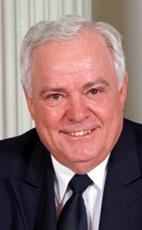Mr. Speaker, on Wednesday, October 27, I put a question to the Minister of Human Resources Development in order to find out whether she thought it reasonable to cut employment insurance benefits to an individual because that person had no means of transport to get about easily, according to an official of the department.
The minister, visibly ignorant of the facts, said that my statements were unfounded accusations. She said, and I quote: “The accusations made by the hon. member are false”. Those are her words.
I proposed to the minister that I table a copy of a letter I had received from a taxpayer in my riding illustrating the situation. But the government opposed this because, apparently, it is government practice to not be too informed of the reality of matters. They do not want to know too much of the truth. They just said my allegations were false.
In the letter I could have tabled in the House—I could not do so because a Liberal member objected—a taxpayer in my riding was told the following:
October 19, 1999
We wish to inform you that we cannot pay you benefits effective October 18, 1999. You have no means of transportation and are thus prevented from accepting employment. For this reason, you have failed to prove your availability.
She was told as well:
If you do not agree with this decision, which is based on the Employment Insurance Act, you have the right to appeal within 30 days.
With the pressure the minister is putting on her officials to harass the unemployed increasingly, we end up with this sort of situation.
What is the reaction of an employee under heavy pressure from the department, when faced with an unemployed worker? It is to try to save the government as much money as possible, not to help the individual who is without resources and lacks the means to make a case before a labour tribunal.
In addition, the claimant is told to appeal if he or she is not happy. People without resources are being asked to go the extra step of justifying benefits, when they are entitled to them because they have paid their premiums.
To illustrate how ridiculous this is, we are talking about a 65-year old woman. She has been told that she has no means of transportation. In a city with public transit, this is a bit much. The woman in question had stated that she usually went on foot to look for work, and had done so until the age of 65. Until that age, she had been able to find work by using the public transit system, taking her bicycle, or walking.
This time, she was told that, since she had no means of transportation, she was no longer available for work. Are we to conclude that all unemployed workers without their own cars have no means of transportation and that, as a result, they no longer qualify for employment insurance?
That is the question I wished to ask and I hope that this time I will receive an answer.

